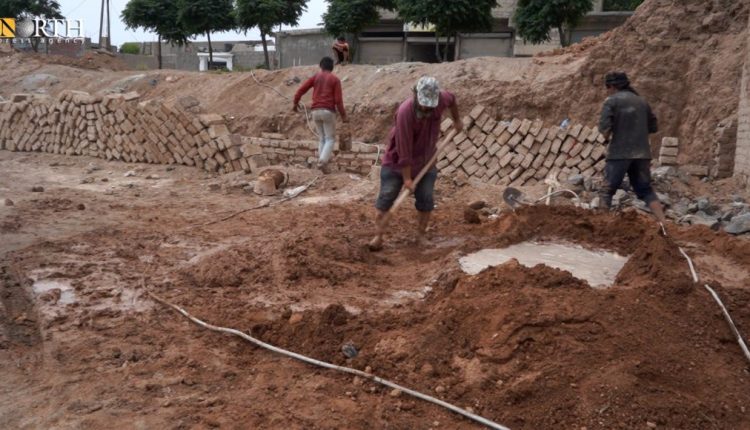
By Zana al-Ali
RAQQA, Syria (North Press) – Culture Board of the Autonomous Administration of North and East Syria (AANES) started in April restoring the archaeological wall of Raqqa in the city of Raqqa in northern Syria with the participation of a number of activists and young people.
Raqqa archaeological wall is a five-kilometer-long historical site with a space of 1,47 km² and dozens of other archaeological sites that were significantly affected by the Syrian war.
Parts of the gardens and buildings of the site were subjected to significant destruction. The AANES restored some of them.
Serfraz Sharif, co-chair of the AANES Culture Board, said they started the second phase of restoring Raqqa’s archeological wall in April 2024, while the first phase was achieved in 2023, and was focused on restoring the walls that connect between five towers.
Sharif added that the second phase includes restoring the walls between the two towers using 40,000 mud bricks.
Raqqa is considered a historical area that is rich in archaeological sites which date back to various periods, ranging from ancient times to the Islamic era. Some of these sites are the Resafa site, Qal’at Ja’bar (Ja’bar castle), and Raqqa archaeological wall.
There are over 550 archaeological sites in the city and its countryside, but most of them, especially those in the countryside, have been subjected to soil erosion and clandestine excavation.
Sharif noted to the significant role of the youth in preserving the region’s heritage, which led to an initiative to involve them in the restoration process.
The campaign included transporting stones and mud bricks by the youth to the restoration site that is located in the eastern part of the city.
The Culture Board has developed future plans to restore several archaeological sites in northern and eastern Syria that have been subjected to destruction and damage, Sharif indicated.
Alaa al-Abo, an activist from Raqqa who has participated in the campaign, said that most of the archaeological sites were affected and damaged during the control of the armed opposition factions at the beginning of the Syrian conflict and the control of ISIS, adding that preserving them is everyone’s duty.
Al-Abo told North Press that the destruction of the archaeological sites negatively affects the culture and the ancient history of the region.
He demanded the restoration of all archaeological sites that have been damaged and vandalized.
In January 2014, ISIS fully captured the city of Raqqa from Syrian opposition factions and later declared it as the capital of its caliphate. the Syrian Democratic Forces (SDF), backed by the US-led Global Coalition to Defeat ISIS expelled ISIS from the city in October 2017 after a four-month battle.
